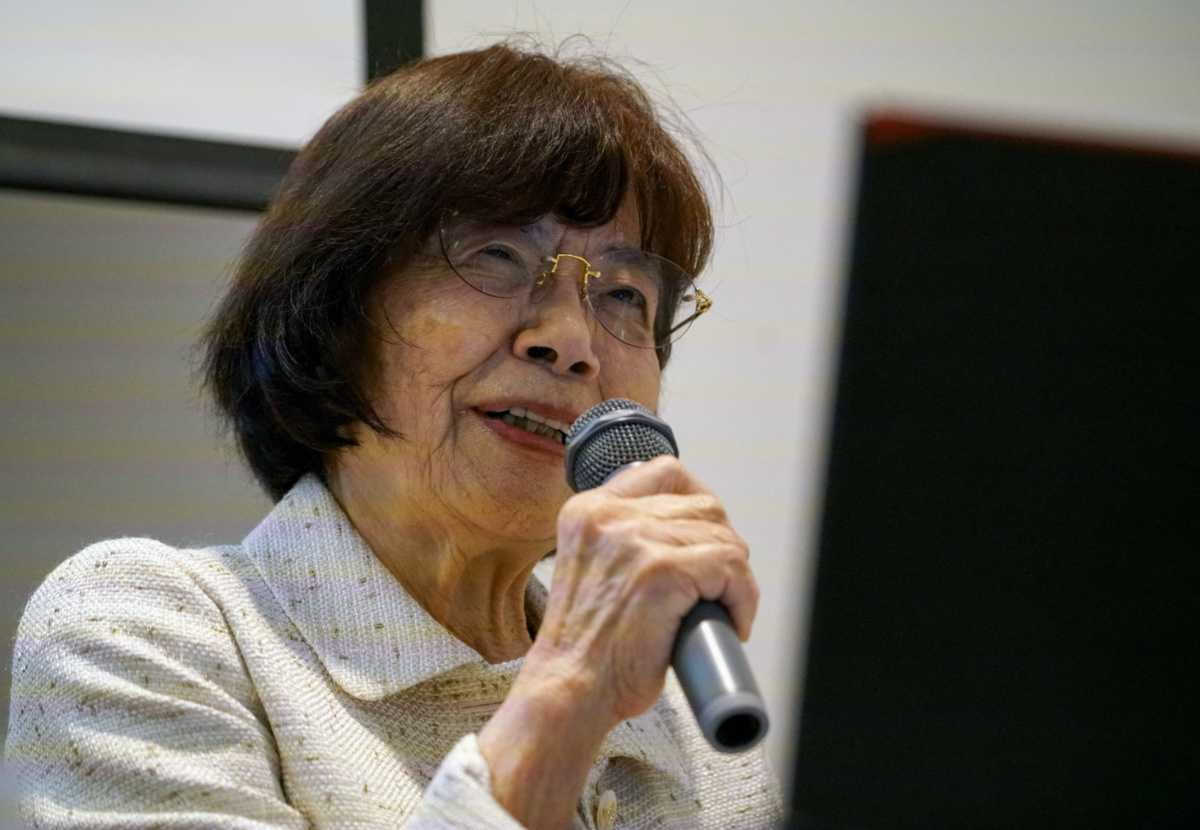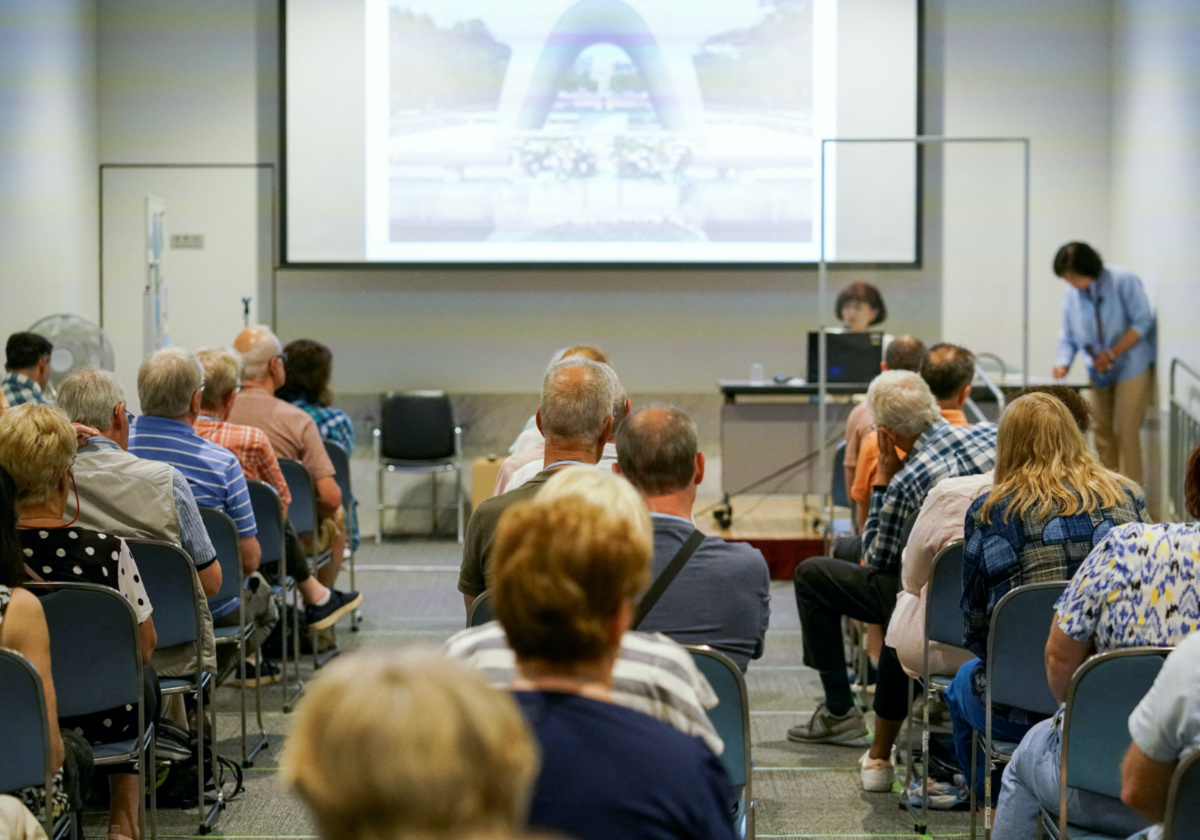
TOM BATEMAN and AKIKO OKAMOTO, of Reuters, speak to Teruko Yahata…
Hiroshima, Japan
Reuters
Standing at the front of a dimly lit room in the basement of the Hiroshima Peace Memorial Museum, Teruko Yahata’s voice broke as she recalled the morning her world changed, on 6th August, 1945.
“All of a sudden, the entire sky flashed and was illuminated in bluish-white, as if the heavens had become one huge, fluorescent light,” the 85-year-old, speaking in English, told an audience of British tourists on a recent Tuesday.
“I immediately fell to the ground and lost consciousness.”

Teruko Yahata, 85, a World War II Hiroshima atomic bombing survivor, speaks about her story of the horrors ofHiroshima to foreign visitors at the Hiroshima Peace Memorial Museum in Hiroshima, western Japan, on 9th May, 2023. PICTURE: Reuters/Tom Bateman
Yahata is a ‘hibakusha’, a survivor of the atomic bomb dropped on the city of Hiroshima by the United States. The bomb killed tens of thousands instantly; scores more suffered long-lasting injuries.
While talks by hibakusha have become a regular feature of the city’s memorial sites, Yahata stands out for her presentations in English.
“I had this vague dream of learning English so that I would be able to communicate in my own words, in my own voice, the dreadful power of that horrific atomic bomb and bring to life my own experience of that tragic, miserable scene, and sorrow.”
– Teruko Yahata, a ‘hibakusha’, speaking in Japanese
Yahata, who was eight when she witnessed the nuclear destruction of her hometown, started travelling the world in 2013 to tell her story through an interpreter, but felt the experience lacking.
“I had this vague dream of learning English so that I would be able to communicate in my own words, in my own voice, the dreadful power of that horrific atomic bomb and bring to life my own experience of that tragic, miserable scene, and sorrow,” she said, speaking in Japanese.
Resolving to learn English, she began taking classes at the YMCA as she headed into her 80s, and by 2021, was giving her presentations exclusively in English.
Yahata’s presentation is from a script translated by her English teacher, which she rehearses by reading along to a recording made by a native speaker. The script is covered in notes and prompts on correct pronunciation and intonation.
Yahata’s English ability is mostly limited to reading the script, but the impact of her spoken words on the audience is undeniable, moving some to tears.
“It feels very real still, when she speaks; she brings it like it’s happening today. She makes you feel that way,” said Briton Denise Hickson, visiting from Bristol.

Teruko Yahata speaks about her story of the horrors ofHiroshima to foreign visitors at the Hiroshima Peace Memorial Museum in Hiroshima, western Japan, on 9th May, 2023. PICTURE: Reuters/Tom Bateman
Japanese Prime Minister Fumio Kishida is hosting the G7 summit in Hiroshima, his home constituency, starting on Friday. He is expected to give his guests a tour of the peace memorial and have them meet with atomic bomb survivors, as part of his efforts to convey a vision for a world free of nuclear weapons.
Although that vision seems more distant now with Russia threatening to resume nuclear tests and neighbouring North Korea developing its own nuclear arsenal, Yahata’s expectations for G7 leaders are lofty.
“I want the G7 leaders to bring with them the vision of abolishing nuclear weapons,” she said. “I don’t want them to just talk about ideals or release a written resolution. I want them to take the first concrete step.”






